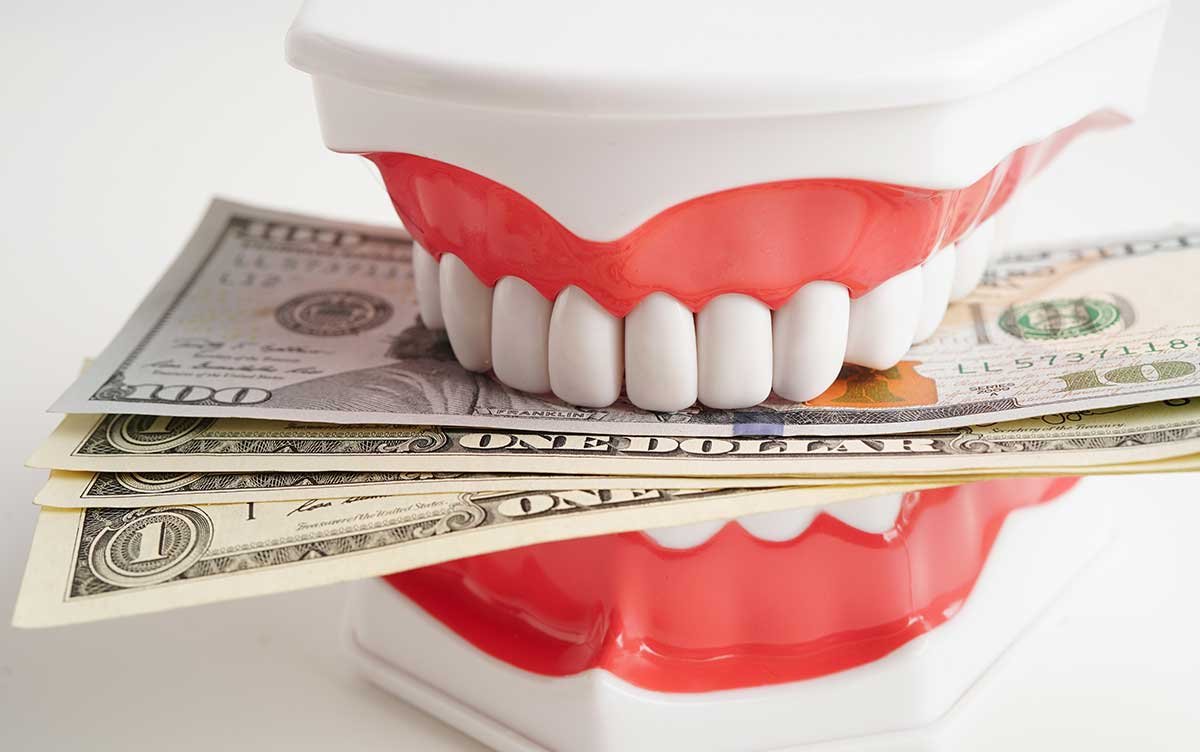Do you really need veneers? If you’re considering improving the appearance of your teeth, veneers can be an excellent solution. However, before making a decision, it’s important to understand the benefits and potential drawbacks. In this article, we’ll explore the factors to consider when deciding if veneers are the right choice for you. Let’s dive in!
Enhancing Your Smile: How Dental Implants Can Transform Your Teeth and Make Veneers a Thing of the Past
Enhancing Your Smile: How Dental Implants Can Transform Your Teeth and Make Veneers a Thing of the Past
Dental implants have revolutionized the field of cosmetic dentistry. With their ability to replace missing teeth and restore smiles, they have become the go-to solution for individuals looking to enhance their smile.
Dental implants are artificial tooth roots that are surgically implanted into the jawbone. Once healed, they provide a strong foundation for replacement teeth, such as crowns or bridges. Unlike veneers, which only cover the front surface of the teeth, dental implants actually replace the entire structure of the missing tooth.
One of the main advantages of dental implants is their durability. Made from high-quality materials like titanium, they are designed to last a lifetime with proper care. This makes them a more cost-effective long-term solution compared to veneers, which may need to be replaced every 10-15 years.
Another benefit of dental implants is their natural appearance. The replacement teeth are custom-made to blend in seamlessly with the surrounding teeth, resulting in a flawless smile. This eliminates the need for additional cosmetic procedures like veneers, which require enamel removal and can sometimes result in an unnatural appearance.
Furthermore, dental implants offer improved functionality compared to veneers. Since they are anchored securely to the jawbone, they provide a stable bite and allow individuals to eat and speak without any concerns. In contrast, veneers may not provide the same level of stability and functionality.
In conclusion, dental implants are a transformative solution for individuals looking to enhance their smile. Their ability to replace missing teeth, their durability, natural appearance, and improved functionality make them a superior alternative to veneers. Say goodbye to outdated cosmetic procedures and embrace the future of dental implants for a stunning smile that lasts a lifetime.
What are the disadvantages of getting veneers?
Veneers can be a cosmetic dental solution for improving the appearance of teeth, but they also come with some disadvantages that you should be aware of.
1. Irreversibility: The process of getting veneers involves removing a thin layer of enamel from the teeth to accommodate the veneers. This is an irreversible procedure, and once you have veneers, you may always need them to maintain the desired appearance.
2. Sensitivity: Some individuals may experience increased sensitivity to hot or cold temperatures after getting veneers. This sensitivity may vary from person to person and could be temporary or permanent.
3. Chipping or cracking: While veneers are generally durable, they can still chip or crack under certain circumstances, such as biting into hard foods or habits like nail-biting or teeth grinding. If a veneer gets damaged, it may need to be replaced.
4. Color matching: Veneers are made to match the color of your existing teeth, but they cannot be whitened once they are in place. If you plan to whiten your natural teeth in the future, the veneers may not match the new shade of your teeth.
5. Maintenance: Veneers require regular maintenance and care to ensure their longevity. Proper oral hygiene, such as brushing and flossing, is crucial. Additionally, avoiding habits like biting on hard objects or using teeth as tools can help prevent damage to the veneers.
It is essential to consult with a qualified dentist or dental implant specialist before deciding if veneers are the right choice for you. They can provide personalized advice based on your specific dental needs.
Do veneers essentially serve as artificial teeth?
No, veneers do not serve as artificial teeth. Veneers are thin shells made of porcelain or composite resin that are bonded to the front surface of natural teeth to improve their appearance. They are primarily used to enhance the aesthetics of the smile by correcting issues such as stained, chipped, or misaligned teeth. Veneers provide a cosmetic solution but do not replace missing teeth. Dental implants, on the other hand, are artificial tooth roots made of titanium that are surgically placed into the jawbone to support a crown, bridge, or denture. They are used to replace missing teeth, restore function, and improve overall oral health.
Do veneers require a lot of maintenance?
Veneers do not require a lot of maintenance, but they do require proper care to ensure their longevity. Here are some important maintenance tips:
1. Oral hygiene: Brushing your teeth twice a day and flossing daily is crucial to maintain good oral health and the longevity of veneers.
2. Avoid staining substances: Limit your intake of drinks like coffee, tea, and red wine, which can stain the veneers over time. If you do consume such substances, rinse your mouth with water afterward.
3. Avoid excessive force: While veneers are durable, avoid using excessive force while biting down on hard objects or opening packages with your teeth, as it can damage them.
4. Regular dental check-ups: Visit your dentist regularly for routine check-ups and professional cleanings to ensure the veneers are in good condition and your oral health is maintained.
5. Sports mouthguard: If you actively participate in sports activities, consider using a mouthguard to protect your veneers from any potential accidental damage.
Remember, each person’s experience may vary, and it is essential to follow your dentist’s specific instructions for maintaining your dental implants and veneers.
Is it possible to revert back to natural teeth after getting veneers?
No, it is not possible to revert back to natural teeth after getting veneers. Veneers are a cosmetic dental procedure where a thin layer of material is placed over the front surface of the teeth to improve their appearance. In order to place veneers, a small amount of enamel may need to be removed from the teeth to ensure a proper fit. This irreversible process means that once the enamel is removed and the veneers are placed, it is not possible to go back to your natural teeth. However, it’s important to note that veneers can provide long-lasting and aesthetically pleasing results when properly maintained and cared for.
Frequent Questions
What are the alternatives to veneers for improving the appearance of dental implants?
There are a few alternatives to veneers for improving the appearance of dental implants:
1. Dental crowns: Crowns are similar to veneers in that they cover the entire tooth surface, but they are typically used when the tooth structure has been significantly compromised. Crowns can be made from various materials, such as porcelain or metal, and they provide both aesthetic enhancement and structural support.
2. Teeth whitening: If the color of the dental implant is the main concern, professional teeth whitening treatments can help improve the shade of the surrounding natural teeth, creating a more uniform appearance. However, it’s important to note that implants themselves are not affected by traditional teeth whitening methods.
3. Gingival contouring: Sometimes, the gums around the dental implant may appear uneven or disproportionate, affecting the overall aesthetic result. Gingival contouring is a minor surgical procedure that reshapes the gum tissue to create a more pleasing gumline.
4. Titanium abutment customization: The abutment is the part of the dental implant that attaches the implant crown to the implant post. Some implant systems offer customized abutments that can be shaped and colored to match the surrounding natural teeth, enhancing the overall appearance.
It is crucial to consult with your dentist or prosthodontist to determine the most suitable alternative to veneers based on your specific needs and the condition of your dental implants.
How do I know if my dental implants would benefit from veneers?
Dental implants and veneers serve different purposes.
Dental implants are used to replace missing teeth by surgically placing an artificial tooth root in the jawbone. They provide a stable foundation for dental restorations such as crowns, bridges, or dentures. Implants are typically recommended for patients who have missing teeth and want a long-term solution.
On the other hand, veneers are thin shells made of porcelain or composite resin that are bonded to the front surface of natural teeth. They are primarily used to improve the appearance of teeth that are discolored, chipped, cracked, or misaligned. Veneers can enhance the shape, color, and overall aesthetics of your smile.
If you already have dental implants and are considering veneers, it’s essential to understand that veneers do not attach directly to implants. Veneers are designed for natural teeth, not implant-supported restorations.
However, there may be situations where veneers can still benefit your dental implants. For example:
1. If the adjacent natural teeth show visible signs of discoloration, damage, or misalignment, veneers can be placed on these teeth to create a more harmonious and natural-looking smile.
2. If the gum tissue around your dental implant is uneven or receding, veneers can be used to improve the appearance of the surrounding teeth and gums, creating a more balanced smile.
3. If you have a single dental implant and want to achieve a perfectly matched, uniform smile, veneers can be placed on the adjacent teeth to achieve a seamless blend.
The best way to determine if veneers would benefit your dental implants is by consulting with a dentist who specializes in implant and cosmetic dentistry. They will evaluate your specific situation and discuss the options available to enhance the appearance of your smile while ensuring the longevity and stability of your dental implants.
Are veneers necessary for achieving a natural-looking smile with dental implants?
Veneers are not necessary for achieving a natural-looking smile with dental implants. Dental implants are designed to replace missing teeth and provide a strong and permanent solution. The implant itself acts as an artificial tooth root, while a custom-made crown is placed on top to resemble a natural tooth. However, in some cases where the adjacent teeth have different shades or shapes, veneers may be recommended to create a more harmonious and aesthetically pleasing result. Veneers can help improve the overall appearance of the smile by addressing issues such as discoloration, minor misalignment, or irregularly shaped teeth. Ultimately, the need for veneers will depend on the individual’s specific requirements and goals for their smile. Consulting with a qualified dentist or prosthodontist will help determine the best treatment plan to achieve a natural-looking smile with dental implants.
In conclusion, the decision to get veneers should not be taken lightly. While they can certainly enhance the appearance of your smile, it is crucial to consult with a dental professional who specializes in dental implants and veneers. It is important to consider the alternatives, such as dental implants, which offer a more permanent and natural-looking solution for missing or damaged teeth. Ultimately, the choice between veneers and dental implants should be based on your specific dental needs and long-term goals. Remember to prioritize your oral health and seek professional advice before making a decision.



